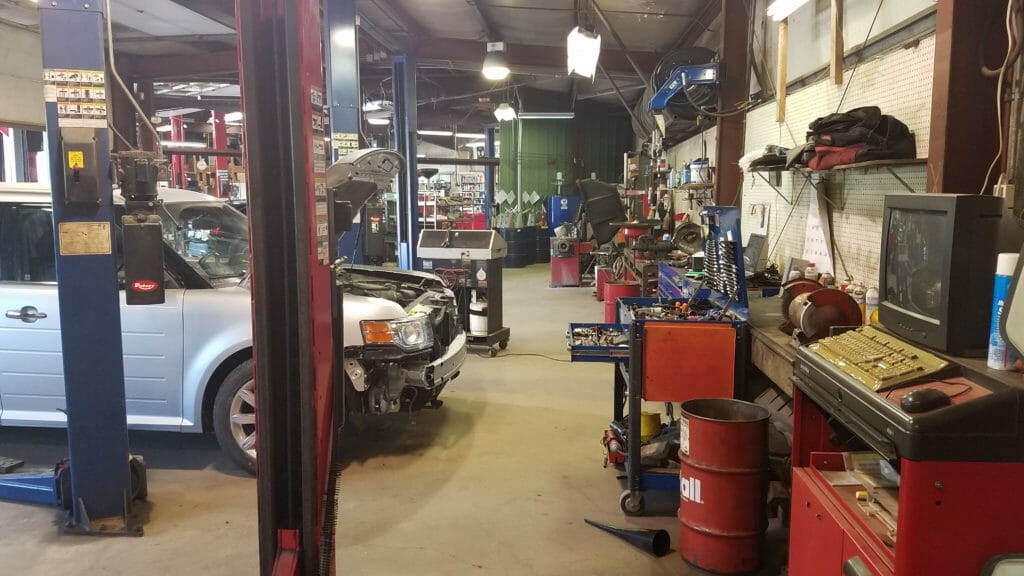Lockdown Survival: The Paycheck Protection Program (PPP)

In our last blog we discussed how auto repair shops are coping with the new cleaning challenges resulting from the COVID-19 epidemic. Adding new responsibilities and expenses is never going to be a good thing for a business, especially a small one. As the lockdown wears on, though, it’s clear that some auto shops are struggling to remain open or avoid bankruptcy. One lifesaver for auto shops has been Paycheck Protection Program (PPP) funding. This program will inevitably turn out to be more complicated than envisioned, but in the short term, it helped shops keep the lights on.
Disappearing Traffic Means Disappearing Work
Currently huge numbers of Americans are either not working or working from home. All outside entertainment has also been cancelled for the foreseeable future. This means there are far fewer cars on the roads. Cars that aren’t driven don’t need as many repairs, so most auto shops have experienced a collapse in work and revenue since March. While auto repair was deemed by the government to be an essential service during the lockdown, that doesn’t help much if few people need your services.
Alan Bigelow, an auto shop manager in Cleveland reported that business at his auto shop was down 50-60% from what it was before the pandemic. While his shop has not laid off its staff, individual staff members are working less, and they are feeling the bite.
The Paycheck Protection Program
Fortunately, the federal government did make Paycheck Protection Program grants available to businesses through the Small Business Association when Congress passed the CARES Act in March. The PPP is a loan that auto shops can and have applied for in order to keep their workers on the payroll. The terms of the PPP state that the SBA will forgive these loans if companies keep all of their employees on their payroll for 8 weeks and the loan is used to meet payroll, pay rent, mortgage interest, or utilities. Countless businesses are still open because of this program.
We wanted to know the impact of this program on our members, so we asked them to tell us how successful they had been in applying for PPP grants in a poll. The results of this poll tell us that, while some shops did not choose to apply, the ones that did almost universally had received their money. This is great news.
As we get closer to the eight-week deadline and some states remain stubbornly locked down, questions are emerging about the PPP. Questions like:
- Will there be an extension of this program?
- Which expenses qualify to be forgiven?
- How much of the funds need to be spent on payroll?
- When did the 8-week period start? When did it end?
Borrowers will have to be careful with their record keeping and make sure that they follow the program requirements to the letter if they want to see those loans forgiven. Currently lawmakers are beginning to discuss tax deductions that will be tied to the forgiven loans. This would be one way to let small businesses get tax-free income plus deductions.
On Friday, May 15th, the House of Representatives passed the Health and Economic Recovery Omnibus Emergency Solutions (HEROES) Act, a fifth coronavirus stimulus package which would eliminate the 75/25 rule requiring 75 percent of PPP loans be used for payroll costs and require forgiveness data collection and reporting. Among other helpful provisions, the HEROES Act would extend the 8-week period to 24 weeks and the covered period from June 30 to December 31. This bill will require significant changes for the Senate to pass it as well, so we will have to see what happens and hope for the best.
Another looming issue, of course, is how much money consumers will have to spend on anything, given that so many of them have been unemployed for weeks or months now. For many, it’s been difficult or impossible to get unemployment money. They still have rent and other expenses that must be paid, so they will avoid spending money on anything non-essential. If they don’t spend when the lockdowns end, even with the Paycheck Protection Program, times will continue to be tough for most businesses.
We want to know how our members are surviving the lockdown. Do you have plans for what you will do when the 8-week PPP period expires? How much has the lockdown affected your customer traffic? Do you expect to rebound later in the year?If your geographic area is back to work, how is that affecting revenues? Please leave your comments either here or on this forum.


Responses